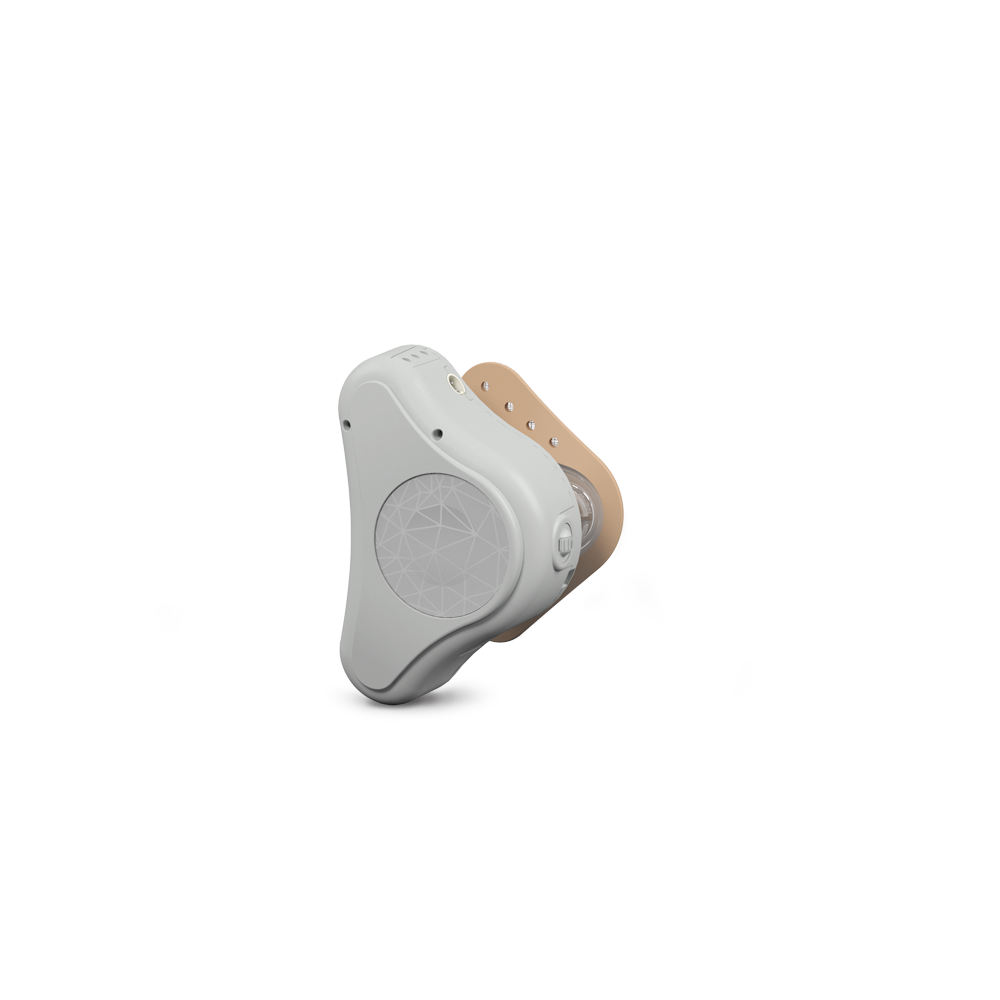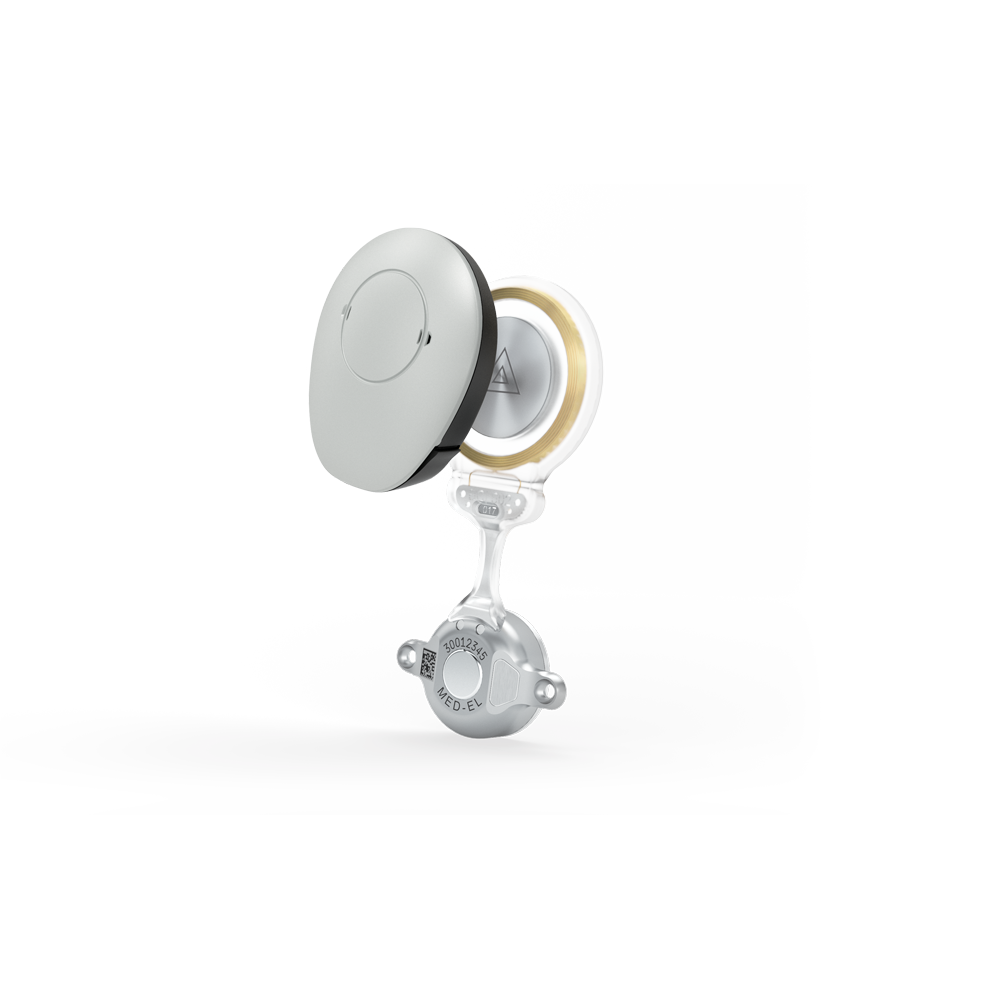
MED-EL
Published Nov 03, 2025
Hearing Loss After an Ear Infection: What’s the Connection?
Ear infections are common and often painful—but did you know they can also affect your hearing? Here's what to look out for if you or someone you know has an ear infection.

In many cases, hearing loss after an ear infection is temporary and hearing returns after the infection clears up. However, when left untreated or when infections become chronic, permanent hearing loss can occur. Understanding how ear infections can lead to hearing problems and knowing when to seek medical help are key to preventing long-term damage. In this article, we’ll explore the types of ear infections, how they impact hearing, and what you can do if your hearing doesn’t return after an ear infection.

Can Ear Infections Cause Hearing Loss?
Yes, an ear infection can cause hearing loss, but in most cases, this hearing loss is temporary. Once the infection clears up and fluid drains from the ear, hearing usually returns to normal. However, when an ear infection is left untreated, becomes chronic, or damages delicate ear structures, it can lead to permanent hearing loss. Understanding the cause of an ear infection and getting timely treatment are key to protecting your hearing health.

Ear Infections That Can Cause Hearing Loss
When classified based on where the infection occurs, there are three main types of ear infections: outer, middle, and inner ear infections. They can all impact hearing in different ways. While most of the time hearing loss caused by an ear infection is temporary, inner ear infections can sometimes cause permanent damage.
Hearing Loss After Outer Ear Infection
Swelling, inflammation, and debris in the ear canal can block sound from reaching the eardrum. It is often caused by bacteria after water exposure (Swimmer’s ear) or trauma (e.g., cotton swabs). This can result in temporary hearing loss. This type of hearing loss is typically mild and can be resolved with the help of treatments such as antibiotic or antifungal drops.
Hearing Loss After Middle Ear Infection (Otitis Media)
An acute middle ear infection can often lead to sudden ear pain, fever and temporary hearing loss. This happens because fluid collects in the middle ear due to bacterial or viral infection. The buildup of fluid prevents sound transmission which can lead to hearing loss.
Additionally, an infection in the middle ear can damage the eardrum and the ossicles which can also lead to drainage and permanent hearing loss. Another important factor is ventilation of the middle ear: If the eustachian tube is blocked, this results in a vacuum which partially compromises hearing.
Hearing Loss After Inner Ear Infection (Labyrinthitis / Vestibular Neuritis)
Infection in the inner ear can affect the cochlea or vestibular system and cause balance and/or hearing problems. When inflammation affects both the cochlear and vestibular structures (labyrinthitis), it may cause temporary or permanent hearing loss and vertigo. When inflammation involves only the vestibular nerve, it causes vertigo without hearing loss.

How to Regain Hearing After an Ear Infection
How long someone hears poorly after a middle ear infection can vary greatly and depends on multiple factors. Decisive factors include how bad the infection was and whether it resulted in complications such as chronic middle ear infections or damage to the ear structures. In most cases, hearing should be restored within a few weeks of successful treatment.
In the case of an acute middle ear infection that is treated promptly and effectively, hearing is often completely normal again after a few days or a week. If, however, fluid remains in the middle ear or the infection does not heal completely, hearing may remain muffled.
In such cases, it is important to have regular check-ups with an ENT doctor to ensure that there is no permanent damage.
For people with recurring ear infections that cause temporary hearing loss, the ADHEAR non-surgical bone conduction system could be helpful. This device can provide access to sound, which is particularly important for young children as they are developing their language skills.

ADHEAR
Discover More
When Hearing Loss Remains After an Ear Infection
Permanent hearing loss after a middle ear infection occurs when the infection damages the ear structure or the inner ear.
This can cause serious complications, and an ENT doctor should therefore be consulted as soon as possible. People who do not get an infection treated adequately or in a timely manner are at an especially high risk of permanent hearing loss after a middle ear infection.
In the case of permanent hearing loss, hearing solutions such as hearing aids can be taken into consideration, in addition to other medicinal or surgical treatment. Remember that an untreated middle ear infection causes not only severe pain but can also lead to permanent hearing loss. Precautions and timely treatment are therefore key.
Other solutions for more severe permanent hearing loss include cochlear implants and bone conduction implants.

Cochlear Implants
Discover More
BONEBRIDGE Bone Conduction Implant
Discover MoreProtecting Your Hearing Health Is Crucial
Most cases of hearing loss after an ear infection are temporary and improve once the infection clears up. However, when hearing does not return, it may signal lasting damage that requires professional care. To prevent long-term complications and protect your hearing health, early diagnosis and prompt treatment are essential.
References

MED-EL
Was this article helpful?
Thanks for your feedback.
Sign up for newsletter below for more.
Thanks for your feedback.
Please leave your message below.
Thanks for your message. We will reply as soon as possible.
Send us a message
Field is required
John Doe
Field is required
name@mail.com
Field is required
What do you think?
© MED-EL Medical Electronics. All rights reserved. The content on this website is for general informational purposes only and should not be taken as medical advice. Contact your doctor or hearing specialist to learn what type of hearing solution suits your specific needs. Not all products, features, or indications are approved in all countries.
WEBER CHRISTIANE
November 10, 2025
BONJOUR POURRIEZ-VOUS SVP FAIRE LE NÉCESSAIRE QU'ONT PUISSE TOUT LIRE EN FRANÇAIS SVP CAR MES CONNAISSANCE EN ANGLAIS PLUS M'EN POUVOIR EN SERVIR JE VOUS EN SERAIT TRÈS RECONNAISSANTE POUR LA TRADUCTION SVP MERCI INFINIMENT AVEC TOUT MON RESPECT CHRISTIANE WEBER PORTEUSE DE 2 CI BILATÉRALE RONDO DEPUIS 27 DÉCEMBRE 2004
MED-EL
November 11, 2025
Hi there, thank you for your comment and feedback regarding a French translation. We will share this with the responsible team here at MED-EL. Additionally, we would recommend getting in touch with your local MED-EL team as they can share information with you in French: https://www.medel.com/contact-med-el Kind Regards
Anne
November 20, 2025
Cannot find local practitioner . Please send phone number for one near 90275.
MED-EL
November 20, 2025
Hi Anne, thank you for reaching out. We recommend getting in touch with your local MED-EL team as they are best equipped to assist you in this case. Please contact them directly via https://www.medel.com/en-us/contact-med-el Kind regards

MED-EL

MED-EL



Conversation
2 Comments